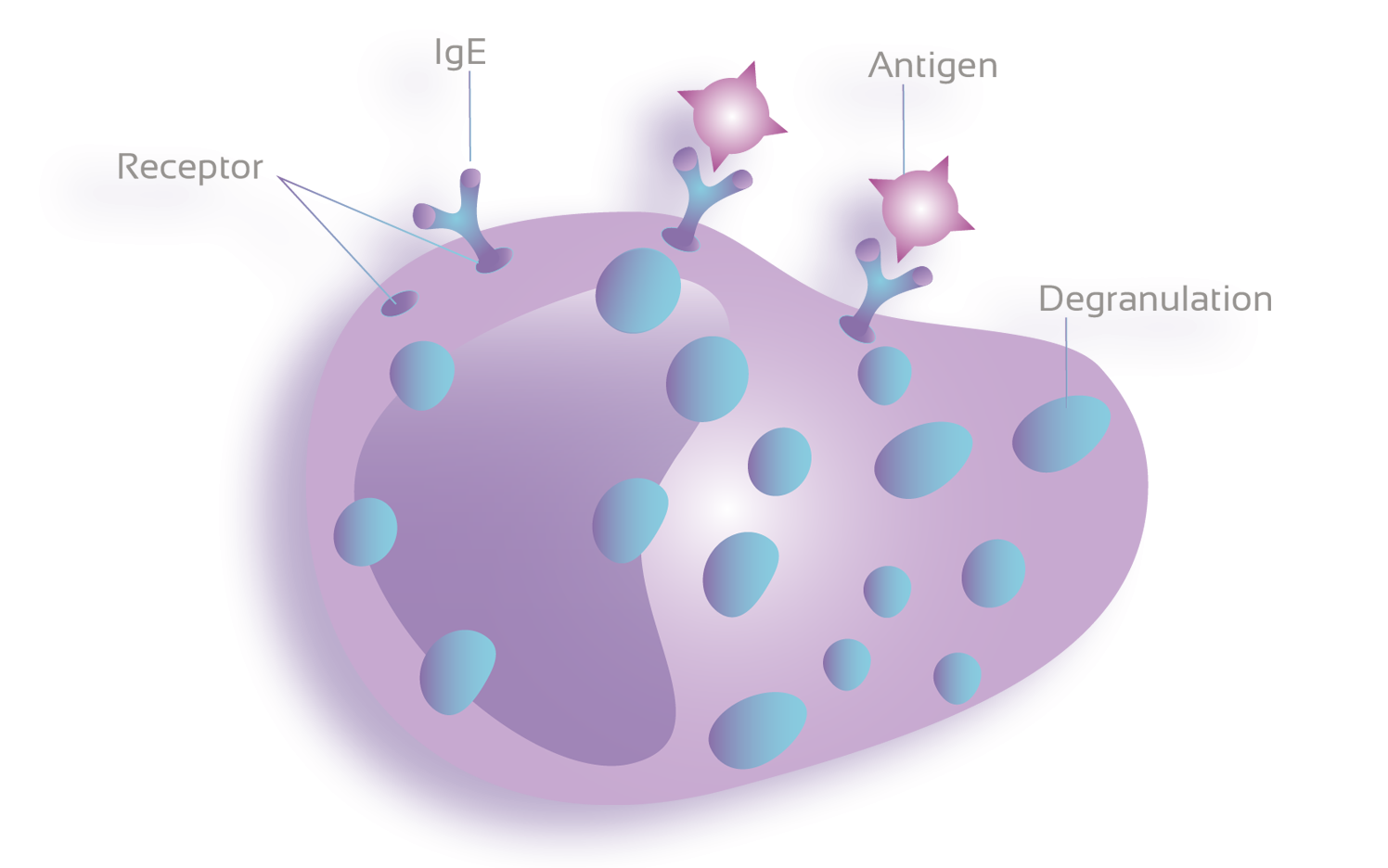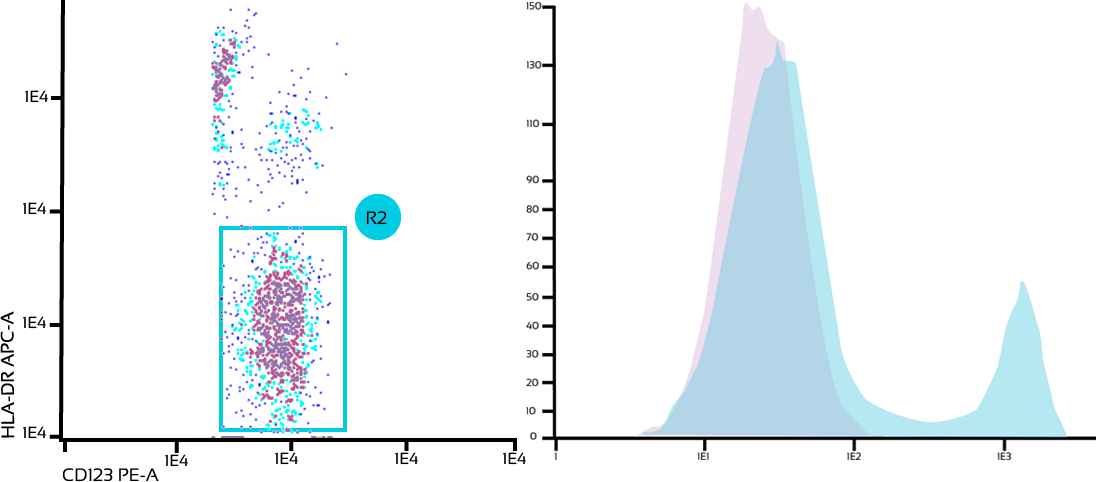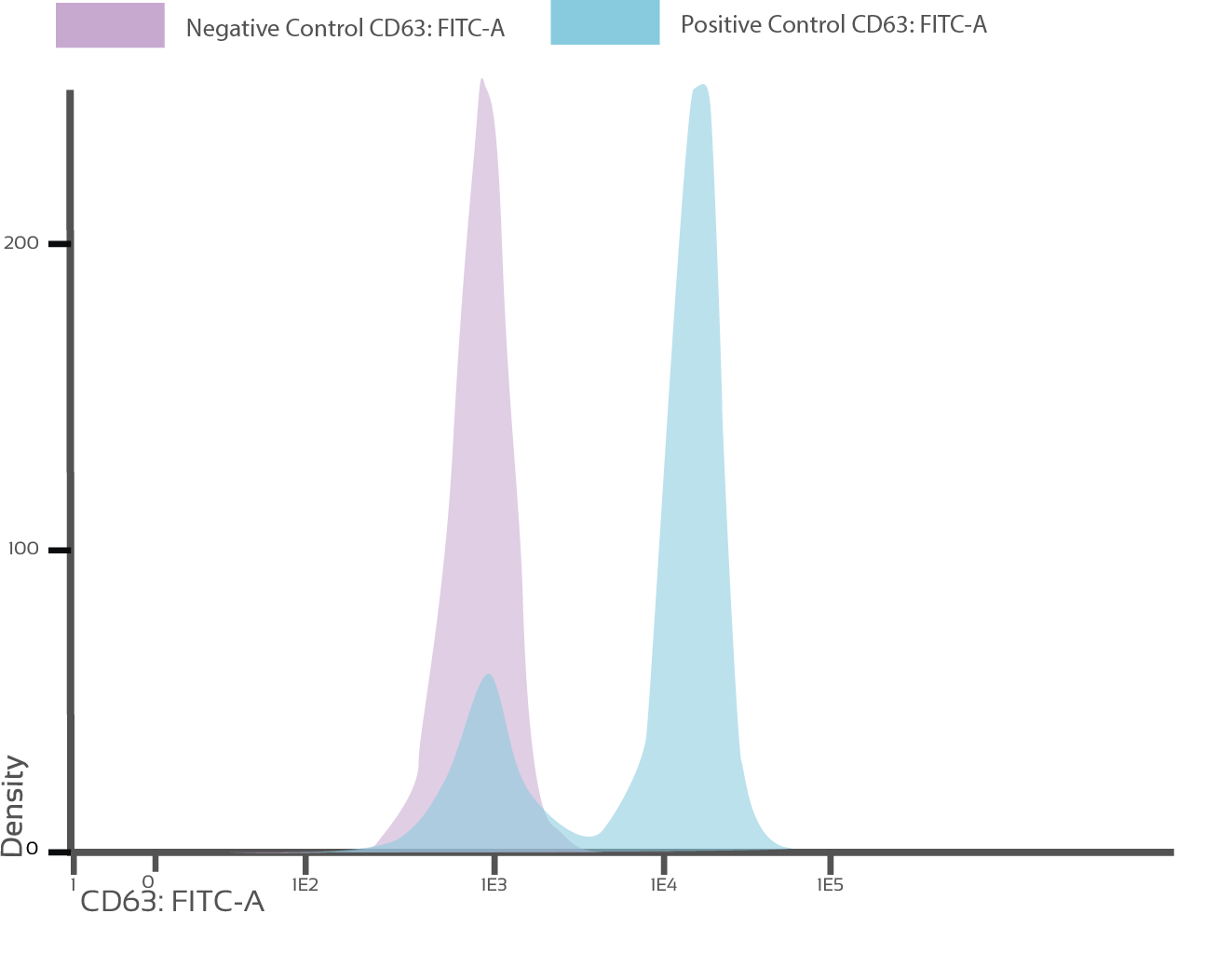- Products
- Oncohematology
- Antibodies
- Kits
- CAR T-cell
- Euroflow
- Single reagents
- Request info
- Resources and support
- Immunology
- Antibodies
- Single reagents
- Cross match determination (FCXM)
- FcεR1
- Ig subclasses
- Single reagents
- Kits
- TiMas, assessment of tissue macrophages
- Request info
- Resources and support
- Antibodies
- Exosomes
- Accesory reagents
- Software
- Oncohematology
- Services
- Peptide Production
- Design
- Modification
- Protein Services
- Expression and purification
- Freeze drying
- Monoclonal And Polyclonal Antibody Development
- Monoclonal
- Policlonal
- Specialized antibody services
- OEM/Bulk production
- Purification
- Conjugation
- Custom Exosome Services
- Isolation and purification
- Characterization
- Peptide Production
- Shop
- Support
- About Us
- Contact
BasoStep:
Determination of activation upon allergen stimulation by Flow Cytometry
IgE-mediated allergic reactions determination by the analysis of CD63 antigen surface on basophils upon allergen stimulation using Flow Cytometry.
-
Does not expose the patient to any allergens;
-
More specific determination of basophils than other tests;
-
Simple and fast: contains positive and negative controls in lyophilized tubes, for easy handling;
-
Offering 3 different solutions depending on the clinical needs.
Basophil activation kit
Diagnostic kit for the quantitative determination of the degranulation of basophilic granulocytes in heparinized human whole blood. Using defined allergens, this test provides information concerning IgE-mediated allergic disorders via the CD63 antigen as a marker of basophil activation.
In susceptible people, IgE is produced by B cells in response to specific antigens such as foods, pollens, latex, and drugs. This antigen specific (or allergen-specific) IgE circulates in the serum and binds to high-affinity IgE receptors on immune effector cells such as mast cells located throughout the body.
Upon subsequent exposure to the same allergen, IgE receptors cross-link and initiate downstream signalling events that trigger mast cell degranulation and an immediate allergic response—hence the term immediate hypersensitivity.
Why analysing CD63 antigen surface on basophils?
The kit is based on the method described by Sainte-Laudy et al. (1994), where basophil activation by allergens is detected by Flow Cytometry and measured by the increase of CD63 (gp53) at the cellular surface. BasoStep allows the quantitative determination of human basophils degranulation.


Basophils are known to be an early and abundant source of Th2 cytokines and other mediators of Th2 inflammation.
Because of the basophils sensitization with allergen specific IgE, they represent a significant effector population in allergic pathogenesis.
Their ability to modulate adaptive immunity is increasingly recognized.

Select the population of R2, which contains the population of basophils.
Using the fluorescence intensity of CD63 analyze the results.
The histogram is a representation of a lysate normal whole blood sample gated on CD123+/CD203c+/HLA-DR-. Control Negative are represented by the purple histogram and Positive Control by blue histogram.
More specific determination of basophils than other tests
The test includes the chemotactic peptide N-formyl-Met-Leu-Phe (fMLP) as positive control and a cocktail of antibodies for detection and determination of degranulated basophils activation.
Therefore, BasoStep assay is based on in-vitro stimulation of basophils using fMLP as positive control and subsequent Flow Cytometry analysis of membrane expression of CD63 on basophils after degranulation.
BasoStep Kit performance:
Using defined allergens, this test is able to provide highly reliable information concerning the releasability of IgE-bearing basophils.
When IgE-receptors on basophils are cross-linked by an allergen, the cells undergo degranulation through cytoplasmatic granules containing the CD63 transmembrane protein fuse with the plasma membrane and release inflammatory mediators. Therefore, the CD63 antigen is exposed as a marker of basophil activation.

The histogram corresponds to the analysis of a blood sample from a healthy individual using BasoStep. Using the fluorescence intensity of CD63, we can analyze the results.
PRODUCT REFERENCES
| Reference | Description | |
|---|---|---|
BSTP-100T | Staining reagent: CD63 FITC, CD203c PE, HLA-DR PERCP, CD123 APC. Positive Control. Estimulation Buffer | Download TDS | Go to shop |